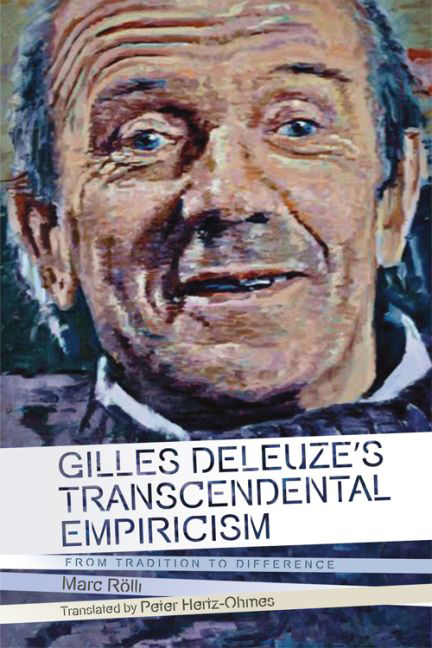Book contents
Introduction: Can Empiricism Have a Transcendental Aspect?
Published online by Cambridge University Press: 27 April 2017
Summary
We always rediscover the necessity of reversing the supposed relations or divisions between the empirical and the transcendental.
(Deleuze 1994: 167)The central focus of Gilles Deleuze's thinking is on a necessary reversal of the relationship between the transcendental and the empirical. That is why he calls his philosophy ‘transcendental empiricism’ (see Deleuze 1994: 56–7, 143–4). This label should be taken literally since it underscores the possibility of conceptualising empiricism as transcendental philosophy. Within this possibility is concealed the entire ‘paradox’ of Deleuzian thought.
Let's face it, almost everyone, both historically and philosophically, is convinced that the systematic positions taken respectively by empiricists and transcendental philosophers are incommensurable. The intention of the present work is to relativise that conviction by accounting for the advent of transcendental empiricism as a coherent form of philosophical thought. One cannot simply assert that the concept of transcendental empiricism incorporates an oxymoron: it is precisely the paradoxical structure of this concept that will necessarily be a major theme of this study. We want to get at a fundamental issue inherent in the stated incommensurability of the two classic positions. Deleuze is neither interested in uncovering the transcendental roots of classical empiricism nor the empirical sources of Kant's critical philosophy. His philosophy implies instead a complex intertwining of these two directions of thought. We can therefore assert that within transcendental empiricism an empiricist critique is applied to transcendental philosophy which commits it in a strong sense to experience, while at the same time a transcendental critique is applied to empiricism which brings to light its philosophical assumptions regarding consciousness.
At the heart of this reciprocal critique is the crucial concept of difference. The philosophy of difference, which culminates in the work of Deleuze, deserves to be better situated among current humanistic and philosophic movements. It must not be discussed in isolation, relegated perhaps to matters of aesthetics, but should be tested, along with its consequences, in the philosophical mainstream. Characteristically, Deleuze starts his philosophical studies with a book on David Hume, who is for him the primary exponent of classical empiricism. It is important to go all the way back to this Hume interpretation to work out his concept of empiricism.
- Type
- Chapter
- Information
- Gilles Deleuze's Transcendental EmpiricismFrom Tradition to Difference, pp. 1 - 20Publisher: Edinburgh University PressPrint publication year: 2016

